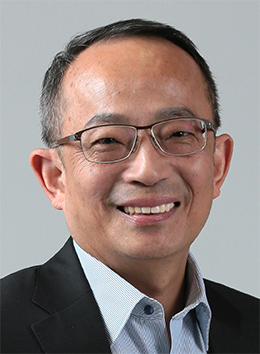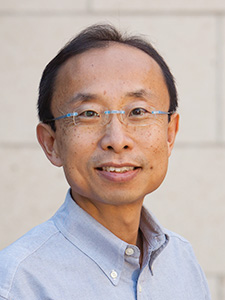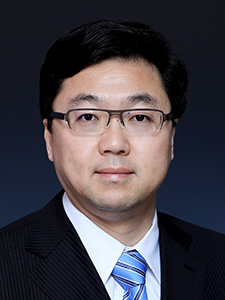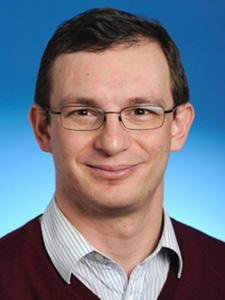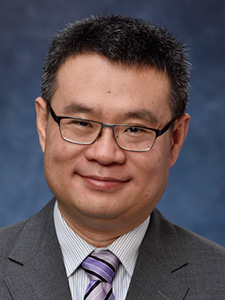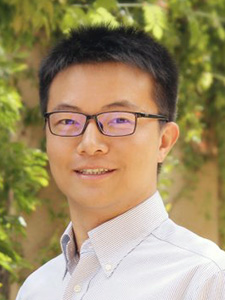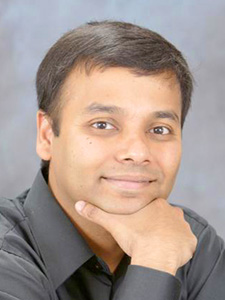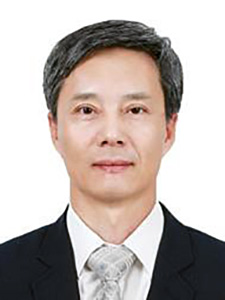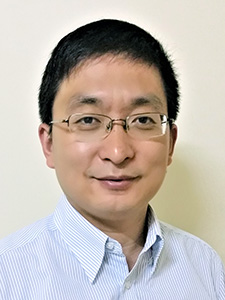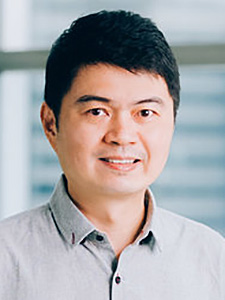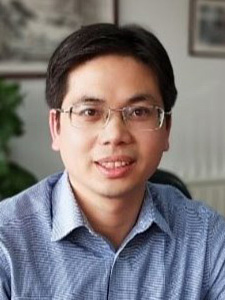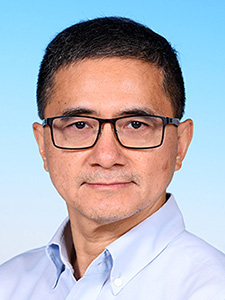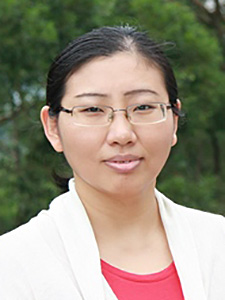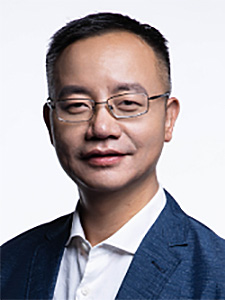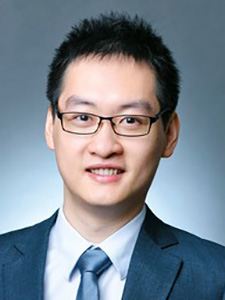Lecturers, Speakers for Workshops & Panel Discussion
Lecturers
Hong Kong University of Science and Technology (HKUST)
Speaker for Public Lecture #1
Tim Cheng is the Dean of Engineering at Hong Kong University of Science and Technology, and Chair Professor jointly in the Departments of ECE and CSE. Before joining HKUST, he was a Distinguished Professor of Electrical and Computer Engineering (ECE) at the University of California, Santa Barbara, where he served since 1993. In the past three decades, Prof Cheng’s research has covered a wide range of topics including computer vision and medical image analysis, as well as integrated circuit design automation, verification and testing. Prof Cheng has extensive experience in fostering cross-disciplinary research collaboration. He has published more than 500 technical papers, co-authored five books, held 12 US patents, supervised 60 PhD dissertations, co-founded 3 companies and transferred several of his inventions into successful commercial products.
Stanford University (Stanford)
Speaker for Public Lecture #2
H.-S. Philip Wong is the Willard R. and Inez Kerr Bell Professor in the School of Engineering at Stanford University. He joined Stanford University as Professor of Electrical Engineering in September, 2004. From 1988 to 2004, he was with the IBM T.J. Watson Research Center. From 2018 to 2020, he was on leave from Stanford and was the Vice President of Corporate Research at TSMC, the largest semiconductor foundry in the world. Since 2020, he has been the Chief Scientist of TSMC. He is a Fellow of the IEEE and received the IEEE Electron Devices Society J.J. Ebers Award for “pioneering contributions to the scaling of silicon devices and technology.” He is the founding Faculty Co-Director of the Stanford SystemX Alliance – an industrial affiliate program focused on building systems, and the faculty director of the Stanford Non-Volatile Memory Technology Research Initiative (NMTRI).
Tsinghua University (THU)
Speaker for Public Lecture #3
Prof. Wu is presently the deputy director of the Institute of Microelectronics, Tsinghua University, Beijing, China. Dr. Wu received his Ph.D. degree in electrical engineering from Cornell University, Ithaca, NY, in 2005. Prior to that, he graduated from Tsinghua University, Beijing, China, in 2000 with double B.S. degrees in material science & engineering and enterprise management. From 2006 to 2008, he was a senior engineer in Spansion LLC, Sunnyvale, CA. He joined the Institute of Microelectronics, Tsinghua University in 2009 as an associate professor. His research interests include advanced memory and brain inspired computing technologies. Dr. Wu has published more than 100 technical papers and owns more than 60 patents. Dr. Wu is also served as the director of Micro/Nano Fabrication Center and deputy director of Beijing Innovation Center for Future Chips.
ETH Zürich (ETH)
Speaker for Public Lecture #4
Onur Mutlu is a Professor of Computer Science at ETH Zurich. He is also a faculty member at Carnegie Mellon University, where he previously held the Strecker Early Career Professorship. His current broader research interests are in computer architecture, systems, hardware security, and bioinformatics. A variety of techniques he, along with his group and collaborators, has invented over the years have influenced industry and have been employed in commercial microprocessors and memory/storage systems. He obtained his PhD and MS in ECE from the University of Texas at Austin and BS degrees in Computer Engineering and Psychology from the University of Michigan, Ann Arbor. He started the Computer Architecture Group at Microsoft Research (2006-2009), and held various product and research positions at Intel Corporation, Advanced Micro Devices, VMware, and Google. He received the IEEE High Performance Computer Architecture Test of Time Award, the IEEE Computer Society Edward J. McCluskey Technical Achievement Award, ACM SIGARCH Maurice Wilkes Award, the inaugural IEEE Computer Society Young Computer Architect Award, the inaugural Intel Early Career Faculty Award, US National Science Foundation CAREER Award, Carnegie Mellon University Ladd Research Award, faculty partnership awards from various companies, and a healthy number of best paper or "Top Pick" paper recognitions at various computer systems, architecture, and security venues. He is an ACM Fellow, IEEE Fellow for, and an elected member of the Academy of Europe (Academia Europaea). His computer architecture and digital logic design course lectures and materials are freely available on YouTube (https://www.youtube.com/OnurMutluLectures), and his research group makes a wide variety of software and hardware artifacts freely available online (https://safari.ethz.ch). For more information, please see his webpage at https://people.inf.ethz.ch/omutlu.
Duke University (Duke)
Speaker for Public Lecture #5
Yiran Chen received B.S and M.S. from Tsinghua University and Ph.D. from Purdue University. He is now the Professor of the Department of Electrical and Computer Engineering at Duke University and serving as the director of NSF Industry–University Cooperative Research Center (IUCRC) for Alternative Sustainable and Intelligent Computing (ASIC) and the co-director of Duke Center for Computational Evolutionary Intelligence (CEI). His group focuses on the research of new memory and storage systems, machine learning and neuromorphic computing, and mobile computing systems. Dr. Chen has published 1 book and more than 400 technical publications and has been granted 96 US patents. He is now the Editor-in-Chief of the IEEE Circuits and Systems Magazine. He also received numerous professional awards including 7 best paper awards, 1 best poster award, and 14 best paper nominations. He is now a distinguished lecturer of IEEE CEDA and listed in the HPCA Hall of Fame. He is a Fellow of the ACM and IEEE.
Massachusetts Institute of Technology (MIT)
Speaker for Public Lecture #6
Song Han is an assistant professor at MIT’s EECS. He received his PhD degree from Stanford University. His research focuses on efficient deep learning computing. He proposed “deep compression” technique that can reduce neural network size by an order of magnitude without losing accuracy, and the hardware implementation “efficient inference engine” that first exploited pruning and weight sparsity in deep learning accelerators. His team’s work on hardware-aware neural architecture search that bring deep learning to IoT devices was highlighted by MIT News, Wired, Qualcomm News, VentureBeat, IEEE Spectrum, integrated in PyTorch and AutoGluon, and received many low-power computer vision contest awards in flagship AI conferences (CVPR’19, ICCV’19 and NeurIPS’19). Song received Best Paper awards at ICLR’16 and FPGA’17, Amazon Machine Learning Research Award, SONY Faculty Award, Facebook Faculty Award, NVIDIA Academic Partnership Award. Song was named “35 Innovators Under 35” by MIT Technology Review for his contribution on “deep compression” technique that “lets powerful artificial intelligence (AI) programs run more efficiently on low-power mobile devices.” Song received the NSF CAREER Award for “efficient algorithms and hardware for accelerated machine learning” and the IEEE “AIs 10 to Watch: The Future of AI” award.
Stanford University (Stanford)
Speaker for Public Lecture #7
Subhasish Mitra is Professor of Electrical Engineering and of Computer Science at Stanford University. He directs the Stanford Robust Systems Group, leads the Computation Focus Area of the Stanford SystemX Alliance, and is a member of the Wu Tsai Neurosciences Institute. Prof. Mitra also holds the Carnot Chair of Excellence in NanoSystems at CEA-LETI in France. His research ranges across Robust Computing, NanoSystems, Electronic Design Automation (EDA), and Neurosciences. Results from his research group have influenced almost every contemporary electronic system, and have inspired significant government and research initiatives in multiple countries. Prof. Mitra also has consulted for major technology companies including Cisco, Google, Intel, Samsung, and Xilinx.
In the field of Robust Computing, he has created many key approaches for circuit failure prediction, on-line diagnostics, QED system validation, soft error resilience, and X-Compact test compression. Their adoption by industry is growing rapidly, in markets ranging from cloud computing to automotive systems. His X-Compact approach has proven essential for cost-effective manufacturing and high-quality testing of almost all 21st century systems, enabling billions of dollars in cost savings.
With his students and collaborators, he demonstrated the first carbon nanotube computer. They also demonstrated the first 3D NanoSystem with computation immersed in data storage. These received wide recognition: cover of NATURE, Research Highlight to the US Congress by the NSF, and highlight as "important scientific breakthrough" by global news organizations.
Prof. Mitra's honors include the Newton Technical Impact Award in EDA (test-of-time honor by ACM SIGDA and IEEE CEDA), the University Researcher Award (by the Semiconductor Industry Association and Semiconductor Research Corporation to recognize lifetime research contributions), the Intel Achievement Award (Intel’s highest honor), and the US Presidential Early Career Award. He and his students have published over 10 award-winning papers across 5 topic areas (technology, circuits, EDA, test, verification) at major venues including the Design Automation Conference, International Solid-State Circuits Conference, International Test Conference, Symposium on VLSI Technology, and Formal Methods in Computer-Aided Design. Stanford undergraduates have honored him several times "for being important to them." He is an ACM Fellow and an IEEE Fellow.
Workshop Speakers
Seoul National University
"Time-varying data processing with nonvolatile memristor-based temporal kernel"
Cheol Seong Hwang received a Ph.D. degree in 1993 at the department of inorganic materials science and engineering, Seoul National University, South Korea. After spending ~ five years as a postdoc in National Institute of Standards and Technology, MD USA, and senior researcher at Samsung Electronics, he has been a professor in the department of materials science and engineering at Seoul National University. He has authored or coauthored more than 648 papers in international peer-reviewed scientific journals, which are cited ~32,700 times (H-index 87). He is a recipient of many awards including the 7th presidential young scientist award of the Korean government, Inchon Award, and Kyung-Ahm Award. His current interests include thin film materials and devices for semiconductor memory devices and neuromorphic computing. He is a member of the Korean Academy of Science and Technology, National Academy of Engineering of Korea, and a Fellow of the Royal Society of Chemistry, UK. He is one of the seven Seoul National University Distinguished Professors.
The Hong Kong Polytechnic University (PolyU)
"Near-/in-sensor computing for neuromorphic machine vision"
Dr. Yang Chai is an Associate Professor in Department of Applied Physics, Vice President of Physical Society of Hong Kong, a member of The Hong Kong Young Academy of Sciences, the IEEE Distinguished Lecturer since 2016, and was the Chair of IEEE ED/SSC Hong Kong Chapter (2017-2019). He is a recipient of RGC Early Career Award in 2014, the Semiconductor Science and Technology Early Career Research Award in 2017, PolyU FAST Faculty Award in Research and Scholar Activities in 2018/2019, Young Scientist Award of ICON-2DMAT in 2019, PolyU President’s Award in Research and Scholar Activities in 2019/2020, and NR45 Young Innovators Award in 2021. His current research interest mainly focuses on emerging electronic devices.
National University of Singapore (NUS)
"In-Memory Computing Using Memristors with Transition Metal Dichalcogenides"
Kah-Wee ANG is currently a tenured Associate Professor of Electrical and Computer Engineering and a Deputy Director of E6 NanoFab at the National University of Singapore. Concurrently, he holds a joint appointment as Principal Scientist with the Institute of Materials Research and Engineering (IMRE), A*STAR. He serves as an Associate Editor of Nano Select (WILEY) and Editorial Board Member for Scientific Reports, a journal of Nature Research. His research interests focus on nano-electronics and nano-photonics technologies. He has authored over 200 journal and conference papers, including 40 invited/keynote talks, 6 US patents, and 4 book chapters. He was conferred the President's Technology Award, the highest national honours bestowed on exceptional research scientists and engineers for their excellent achievements in science and technology. He received the IEEE Paul Rappaport Award for the best paper published in IEEE Transactions on Electron Devices and the Best Demo Paper at the 2019 Symposia on VLSI Technology and Circuits. He is also a recipient of the IEEE Electron Devices Society Graduate Fellowship Award and the inaugural TSMC Outstanding Research Gold Award.
Peking University (PKU)
"Memristive Neuromorphic Systems and Brain-inspired Processing Concepts"
Yimao Cai received the Ph.D. degree in Microelectronics from Peking University, Beijing, China, in 2006. From 2006 to 2009, he was with R&D center, Samsung Electronics, Korea, where he contributed to the development of 65 nm/45 nm NOR flash chips and their characterization. In 2009, he joined Institute of Microelectronics, Peking University, where he is currently a full Professor and the Head of the Department of Microelectronics. He is also a Scholar of Beijing Academy of Artificial Intelligence (BAAI) and serves as associate editor of SCIENCE CHINA Information Sciences. He is the holder of ~30 granted patents and has authored or coauthored two books and over 100 papers. His research interests include nonvolatile memory devices, neuromorphic devices and the brain-inspired computing technologies.
Hong Kong University of Science and Technology (HKUST)
"Tight Compression: Compressing CNN Through Fine-Grained Pruning and Weight Permutation for Efficient Implementation"
Prof. Tsui obtained his BS degree in Electrical Engineering from University of Hong Kong, and MS and PhD degrees in Computer Engineering from University of Southern California. Prof Tsui received the IEEE Transactions on VLSI System Best Paper Award in 1995. He also supervised the best student paper award of IEEE ISCAS in 1999. He has reviewed several IEEE transactions and journals, and he served on the organization committee of ASP-DAC’99 and program committees of IEEE ISLPE, VLSI, ASP-DAC and other conferences. He also consulted for local and multinational companies. He is an IEEE member.
Hong Kong University of Science and Technology (HKUST)
"Architectural Exploration and Memory Management for Emerging CPU-FPGA Systems"
Wei Zhang is currently an Associate Professor with the Department of Electronic and Computer Engineering, the Hong Kong University of Science and Technology, Hong Kong, where she established the Reconfigurable System Laboratory. She authored over 120 technical papers in referred international journals and conferences and authored three book chapters. Her team has won the best paper award in ISVLSI 2009 and ICCAD 2017. Her current research interests include reconfigurable system, embedded system, hardware acceleration, power and energy management, etc. She serves as Associate Editor of TRETS, TVLSI, TCAD, TECS and JETC. She has also served on many organization committees and technical program committees, such as DAC, ICCAD, DATE, ASPDAC, CASES, FPGA, FCCM, FPL, FPT, etc.
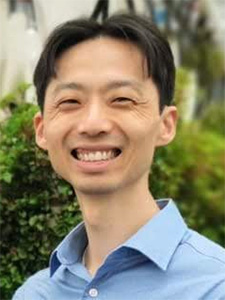
The University of Hong Kong (HKU)
"Towards Scalable Near-Memory Computing with Reconfigurable Computing Data"
Hayden K.-H. So received the B.S., M.S., and Ph.D. degrees in electrical engineering and computer sciences from the University of California, Berkeley, CA, USA, in 1998, 2000, and 2007, respectively. He is currently an Associate Professor and Co-director of the computer engineering program at the Department of Electrical and Electronic Engineering. He is also the co-director and founding member of the Joint Lab on Future Cities at the University of Hong Kong. His research focuses on highly-efficient reconfigurable computing systems and their applications. He received the Croucher Innovation Award, in 2013, the University Outstanding Teaching Award (Team), in 2012, and the Faculty Best Teacher Award, in 2011. He was the Technical Program Chair for various international conferences, including the 16th International Symposium on Applied Reconfigurable Computing (ARC 2020), the 2014 International Conference on Field-Programmable Technology (FPT), the 2014 International Symposium on Highly-Efficient Accelerators and Reconfigurable Technologies (HEART), and the 2015 IEEE International Conference on Application-Specific Systems, Architectures, and Processors (ASAP). He was also the Multiprocessor Systems and Networks on Chip Track Co-Chair for the International Conference on Reconfigurable Computing and FPGAs (ReConfig) and a Guest Editor for the Journal of Signal Processing Systems.
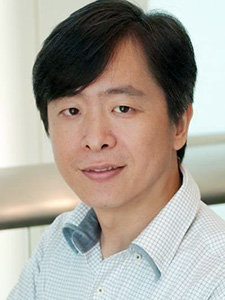
The Chinese University of Hong Kong (CUHK)
"Machine Learning for Microfluidic Design and Automation"
Tsung-Yi Ho received his Ph.D. in Electrical Engineering from National Taiwan University in 2005. He is a Professor with the Department of Computer Science and Engineering of the Chinese University of Hong Kong. His research interests include several areas of computing and emerging technologies, especially in design automation of microfluidic biochips. He was a recipient of the Best Paper Awards at the VLSI Test Symposium (VTS) in 2013 and IEEE Transactions on Computer-Aided Design of Integrated Circuits and Systems in 2015. He served as a Distinguished Visitor of the IEEE Computer Society for 2013-2015, a Distinguished Lecturer of the IEEE Circuits and Systems Society for 2016-2017, and a Distinguished Speaker of ACM for 2014-2020. Currently, he serves as the VP Technical Activities of IEEE CEDA, Associate Editor of the ACM Journal on Emerging Technologies in Computing Systems, ACM Transactions on Design Automation of Electronic Systems, IEEE Transactions on Computer-Aided Design of Integrated Circuits and Systems, and IEEE Transactions on Very Large Scale Integration Systems, and the Technical Program Committees of major conferences, including DAC, ICCAD, DATE, ASP-DAC, etc. He is a Distinguished Member of ACM.
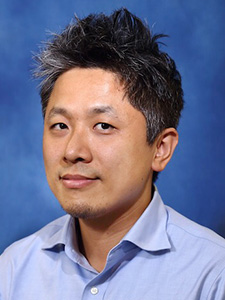
The Chinese University of Hong Kong (CUHK)
"VLSI Mask Optimization: From Shallow To Deep Learning"
Bei Yu is currently an Associate Professor at the Department of Computer Science and Engineering, The Chinese University of Hong Kong. He received the Ph.D degree from Electrical and Computer Engineering, University of Texas at Austin, USA in 2014. His current research interests include machine learning with applications in VLSI computer aided design (CAD). He has served as TPC Chair of 1st ACM/IEEE Workshop on Machine Learning for CAD (MLCAD), served in the program committees of DAC, ICCAD, DATE, ASPDAC, ISPD, the editorial boards of ACM Transactions on Design Automation of Electronic Systems (TODAES), Integration, the VLSI Journal, and IET Cyber-Physical Systems: Theory & Applications. He is Editor of IEEE TCCPS Newsletter.
Prof. Yu received seven Best Paper Awards from ASPDAC 2021 & 2012, ICTAI 2019, Integration, the VLSI Journal in 2018, ISPD 2017, SPIE Advanced Lithography Conference 2016, ICCAD 2013, six other Best Paper Award Nominations (DATE 2021, ICCAD 2020, ASPDAC 2019, DAC 2014, ASPDAC 2013, and ICCAD 2011), six ICCAD/ISPD contest awards, IBM Ph.D. Scholarship in 2012, SPIE Education Scholarship in 2013, and EDAA Outstanding Dissertation Award in 2014.
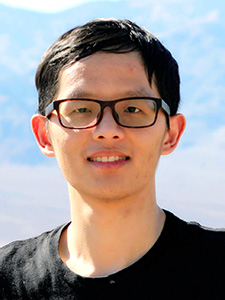
Peking University (PKU)
"Exploring AI-assisted Optimization Opportunities in Placement and Routing"
Yibo Lin, received the B.S. degree in microelectronics from Shanghai Jiaotong University in 2013, and his Ph.D. degree from the Electrical and Computer Engineering Department of the University of Texas at Austin in 2018. He is current an assistant professor in the Computer Science Department associated with the Center for Energy-Efficient Computing and Applications at Peking University, China. His research interests include physical design, machine learning applications, GPU acceleration, and hardware security. He has received 4 Best Paper Awards at premier venues (ISPD 2020, DAC 2019, VLSI Integration 2018, and SPIE 2016). He has also served in the Technical Program Committees of many major conferences, including ICCAD, ICCD, ISPD, and DAC.
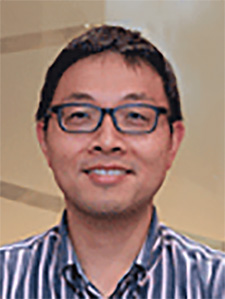
The University of Hong Kong (HKU)
"Artificial Intelligence in Computational Imaging Systems"
Edmund Lam received his PhD in electrical engineering from Stanford University. He is a professor in the Department of Electrical and Electronic Engineering at the University of Hong Kong, and a co-leader of the Research Program 4: Hardware-Accelerated AI Applications under ACCESS. He works on computational imaging algorithms and systems, with applications primarily in optical imaging. He is a Fellow of IEEE, OSA, SPIE, IS&T, and HKIE.
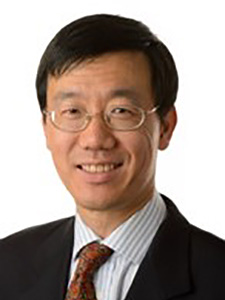
University of Sydney (USYD)
"Low Precision Inference and Training for Deep Neural Networks"
Philip Leong (梁恆惠) received his Ph.D. degree from the University of Sydney. He is Professor of Computer Systems in the School of Electrical and Information Engineering at the University of Sydney, Visiting Professor at Imperial College, Chief Technology Advisor to ClusterTech and Chief Technology Officer at CruxML.
Southern University of Science and Technology (SUSTech)
"Edge Computing for Low-carbon Intelligence"
Hao Yu received the Ph.D. degree in electrical engineering from the Department of Electrical Engineering, University of California, Los Angeles, Los Angeles, CA, USA. He is currently a professor with the Southern University of Science and Technology, Shenzhen, China. His primary research interests include energy-efficient data links, sensors, and analysis.
Hao Yu has about 260 peer-reviewed IEEE/ACM publications; six books; one Best Paper Award of ACM transaction; three keynote talks; three best paper award nominations for Design Automation Conference (DAC) in 2006, International Conference on Computer-Aided Design in 2006, and international conference on VLSI design automation in Asia and South Pacific region in 2012; He is an Associate Editor for Nature-SciReports, IEEE Transaction on Biomedical Circuits and Systems, ACM Transactions on Embedded Computing Systems, Elsevier Microelectronics, etc., and a Technical Program Committee Member for IEEE Custom Integrated Circuits Conference, IEEE Asian Solid-State Circuits Conference, ACM-DAC, ACM Design, Automation and Test in Europe Conference and Exhibition, etc., and of many IEEE/ACM international journals and conferences.
The University of Hong Kong (HKU)
"Differentiable Dynamic Quantization with Mixed Precision and Adaptive Resolution"
Luo Ping is an assistant professor at the department of computer science, the University of Hong Kong. He received his PhD degree in 2014 in Information Engineering, the Chinese University of Hong Kong (CUHK), supervised by Prof. Xiaoou Tang (founder of SenseTime) and Prof. Xiaogang Wang. He has published 100+ peer-reviewed articles (including 20 first/co-first author papers) in top-tier conferences and journals such as TPAMI, IJCV, ICML, ICLR, NeurIPS and CVPR, with 16000+ citations in Google Scholar. He has won a few competitions and awards such as the first runner up in 2014 ImageNet ILSVRC Challenge, Gold medal in 2017 Youtube-8M Video Classification Challenge, 2013 Microsoft Research Fellow Award (ten PhDs in Asia). He was named one of the young innovators by the MIT Technology Review "Innovators Under 35 (MIT TR 35)" Asia Pacific.
Panel Discussion on “Frontiers of AI Accelerators: Application and Business Opportunities”
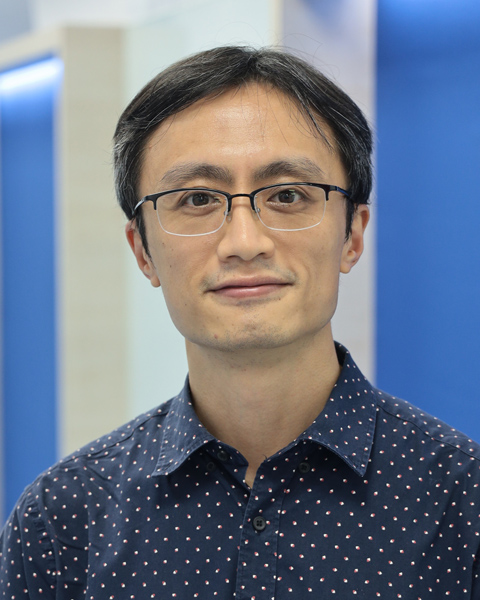
Associate Professor, Department of Electrical and Electronic Engineering, The University of Hong Kong
Moderator of Panel Discussion
Ngai Wong received his Ph.D. in Electrical and Electronic Engineering from The University of Hong Kong (HKU), and he was a visiting scholar with Purdue University, West Lafayette, IN, in 2003. He is currently an Associate Professor with the Department of Electrical and Electronic Engineering at HKU. His research interests include linear and nonlinear system modeling and simulation, tensors in electronic design automation (EDA) and machine learning, and neural network compression algorithms.

Investment Director, Honeywell Ventures
Panelist of Panel Discussion
Paul Kingston is an Investment Director at Honeywell Ventures where he manages the fund’s activities across Asia. In this role, he focuses on sourcing new investment opportunities, and supporting and developing partnerships between portfolio companies, startups and Honeywell. Previously, he served as Director, Corporate Development, Honeywell focused on strategic mergers, acquisitions, and divestitures in support of global inorganic growth efforts. In that capacity, he engaged stakeholders across the company to ensure that corporate development efforts aligned with business and SBG strategy and initiatives. Paul has extensive experience in High Growth Regions where he spent several years focused on growth and strategy within Honeywell’s Automation and Control Solutions business.

Professor, Electrical and Electronic Engineering; Director, Computer Engineering Program, The University of Hong Kong
Panelist of Panel Discussion Session - “Frontiers of AI Accelerators: Application and Business Opportunities”
Edmund Lam received his PhD in electrical engineering from Stanford University. He is a professor in the Department of Electrical and Electronic Engineering at the University of Hong Kong, and a co-leader of the Research Program 4: Hardware-Accelerated AI Applications under ACCESS. He works on computational imaging algorithms and systems, with applications primarily in optical imaging. He is a Fellow of IEEE, OSA, SPIE, IS&T, and HKIE.
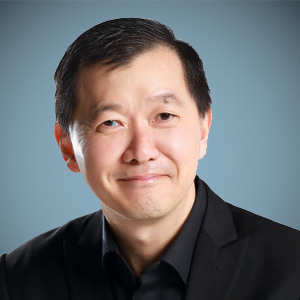
Senior Vice President, Operations and Applications, Efinix
Panelist of Panel Discussion
Ming brings to Efinix more than 25 years of operations and customer support experience in the semiconductor industry. He has in-depth knowledge of semiconductor manufacturing from wafer fabrication, to assembly, to testing and logistics. Ming also built from the ground-up multiple fully multi-functional operations.
He has held various leadership positions from product engineering, quality, testing and overall operations during his career. Prior to joining Efinix Ming was managing director for nearly a decade at Microsemi Corporation. He also was director of Asia manufacturing at PMC-Sierra and general manager at Supertex. Ming began his career in the semiconductor industry at Telecom Semiconductor, Mitel Semiconductors and LSI Logic, where he held operations and engineering roles.
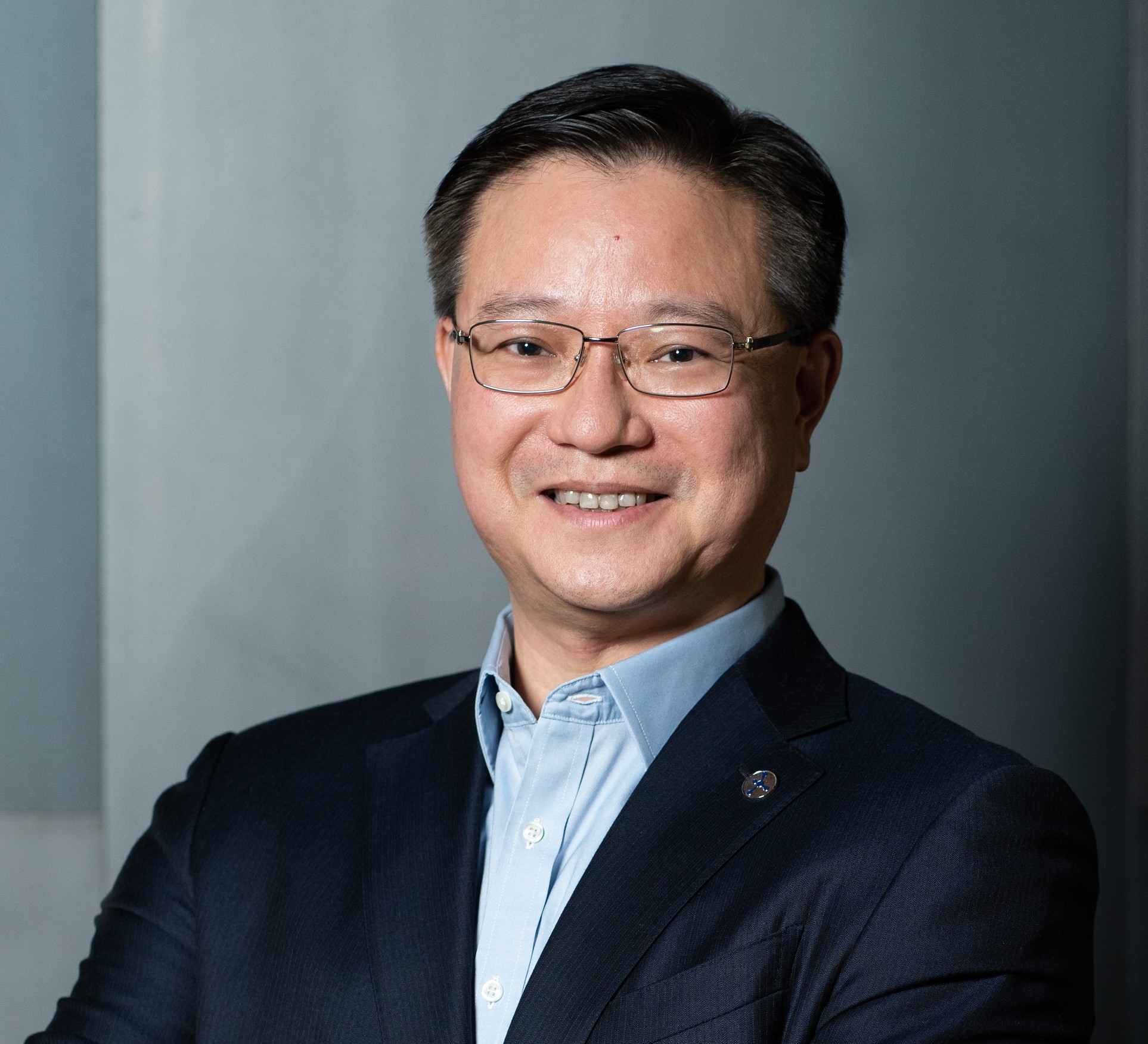
Head of Investment, Hong Kong Science & Technology Parks Corporation
Panelist of Panel Discussion
Raymond Wong, Head of Investment, Hong Kong Science and Technology Park (HKSTP), manages the HKSTP Corporate Venture Fund and Investment & Business Support departments. He has over 25 years of extensive financial services experience in capital investment, portfolio management, mergers and acquisition as well as strategic investment across different sectors in the Asia Pacific region. Prior to HKSTP, Raymond was the Principal in HPEF Capital Partners which is an ex-HSBC private equity firm. Prior to HSBC, Raymond worked in the capital investment and investment banking divisions of ABN AMRO Bank. Previously, he had software development experience at IBM Laboratory in Toronto, Canada. Raymond is a member of the Venture Committee, Hong Kong Venture Capital and Private Equity Association.
Raymond obtained a Bachelor of Applied Science in Engineering Science (Computer Aided Design and Manufacturing) from University of Toronto and a Master of Business Administration in Finance from Columbia Business School, New York.
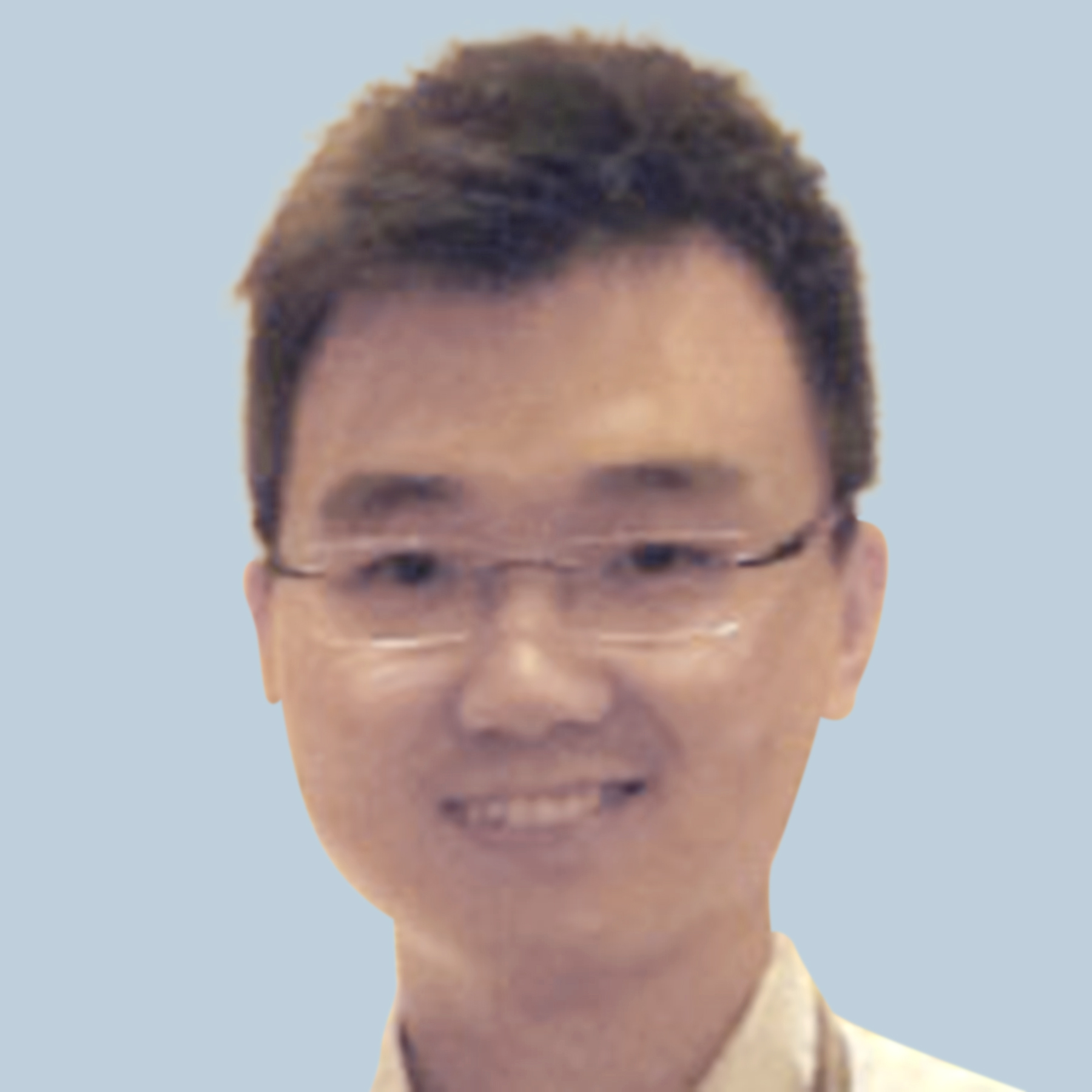
Investment Director, Lenovo Capital & Incubator Group (LCIG)
Panelist of Panel Discussion Session - “Frontiers of AI Accelerators: Application and Business Opportunities”
Mr. Michael Xue is currently the investment director of Lenovo Capital & Incubator Group (LCIG). He also oversees Lenovo's early-stage investment business (Lenovo Accelerator), providing both fund and ecosystem support for tech entrepreneurs and startups covering a wide spectrum of technologies (i.e. AI, big data, IIoT, Edge Computing, key components, etc) and innovations across many industrial sectors like smart manufacturing, logistics, healthcare and fintech.
He was the director of Lenovo APAC Machine Intelligence Centre and led the R&D team of big data and cloud computing to drive innovations for Lenovo's enterprise service business. He also found the Image & Visual Computing Lab of Lenovo Research and Technology (R&T) in 2012.
